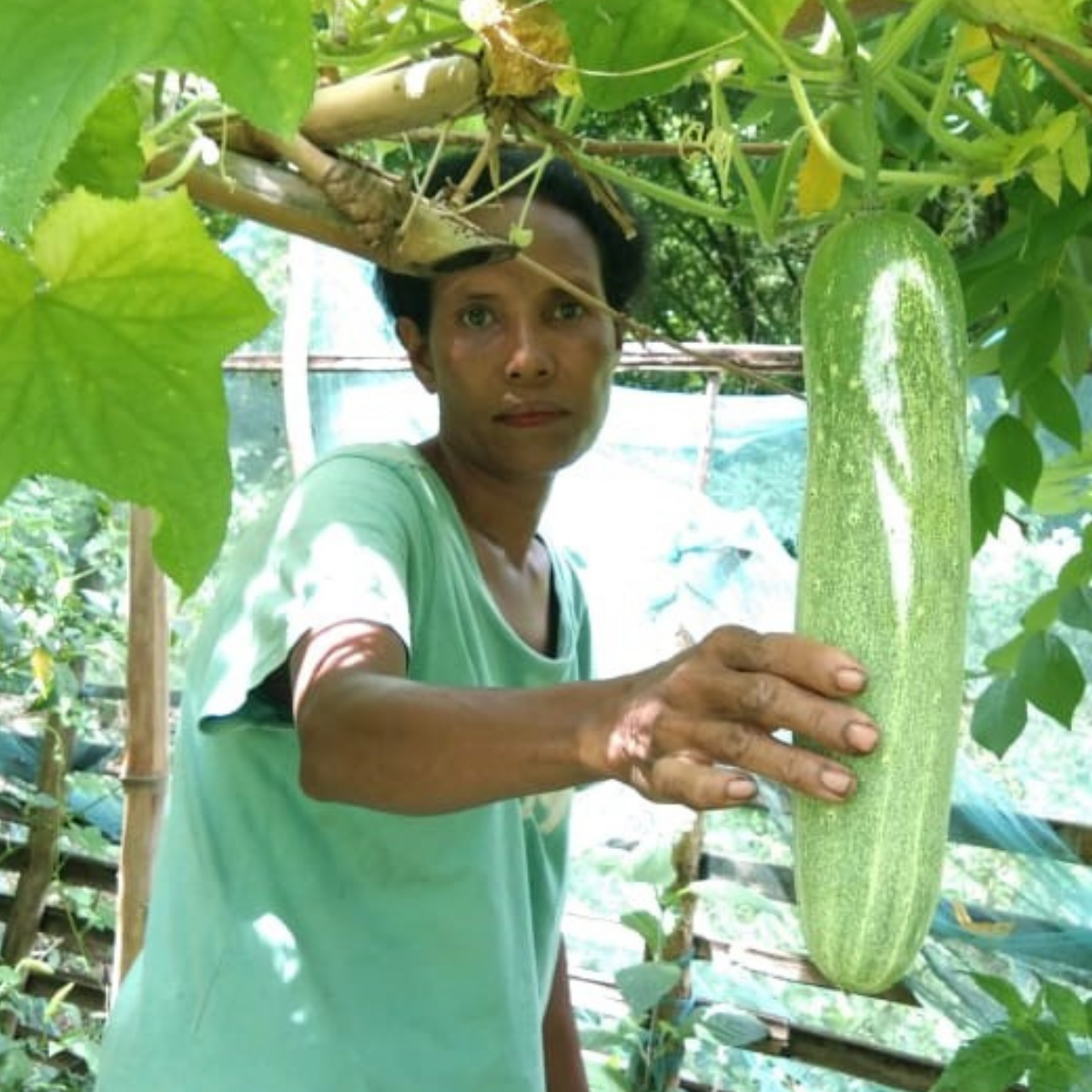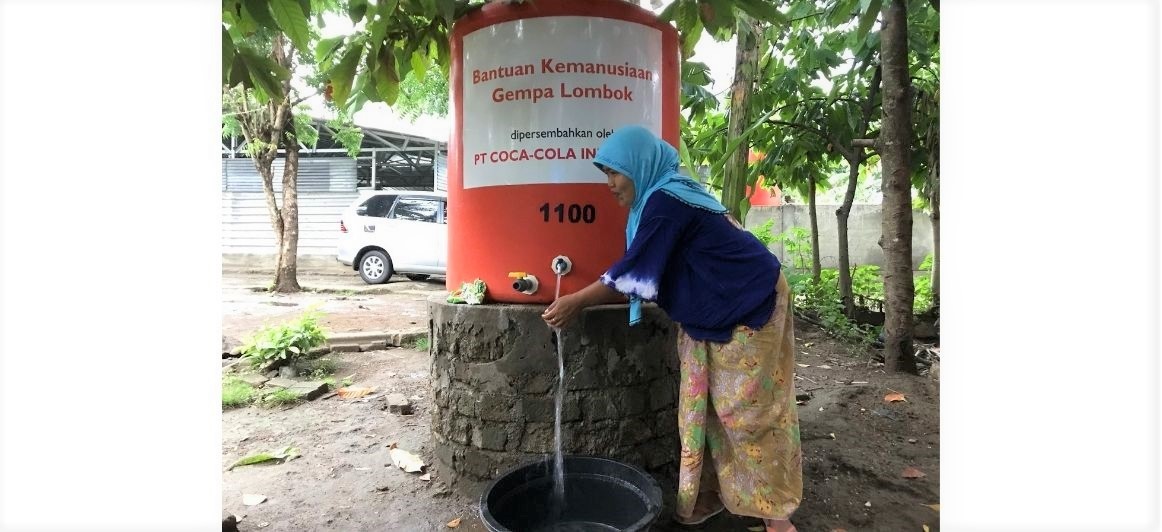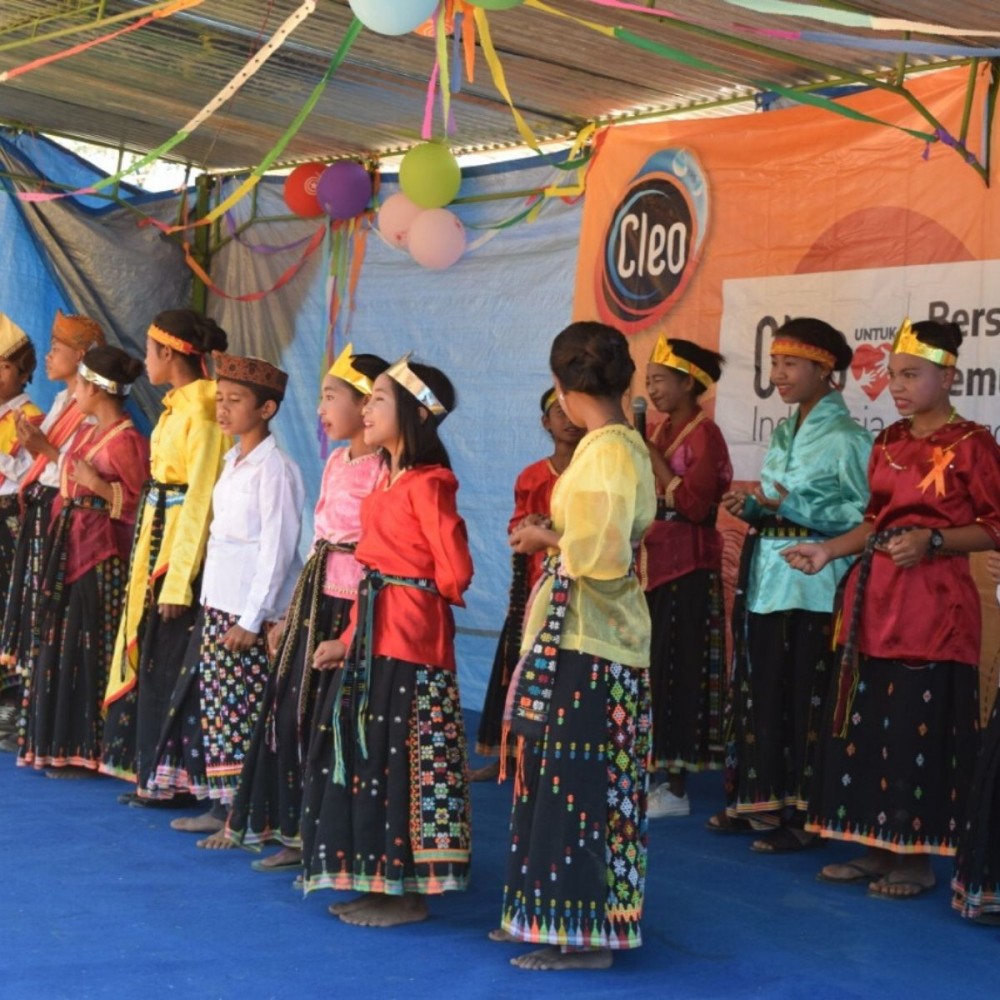Kebunku Sumber Pangan dan Pendapatan Keluarga

Paulina, 47, is a housewife. She lives with her children and husband in a village in the Southwest Sumba regency in East Nusa Tenggara province. Despite living in a village with many limitations, Paulina still puts her family first, including the food they must consume. For the sake of adequate nutrition, Paulina often has to go to the market to buy vegetables. The costs she spends for transportation from home to the market and shopping for various vegetables at the market are certainly not small. As a housewife who only depends on her husband’s income, of course, spending just to buy vegetables is quite a burden on family finances.
That was then, an old story. Now Paulina almost no longer has to spend money to buy vegetables. She can even sell her abundant vegetable crops to her neighbors. How could it be? Yes, it is because Maria gets assistance from the Nutrition Garden program assisted by Wahana Visi Indonesia, which is fully supported by HSBC Indonesia. The focus of the program is to assist farmers, the majority of whom are corn farmers, in terms of family nutrition and the economy. Previously, in Southwest Sumba, there were many cases of stunting and malnutrition because of the lack of farmers' income due to the uncertain season. The lack of income means the lack of food for the family especially their children. In Sumba Barat Daya, this program intervention was carried out through eight nutrition posts and 31 demonstration gardens. The nutrition garden program begins with the provision of seeds and irrigation. Furthermore, parents like Paulina received training on how to process food from vegetables.
After walking for several months, Paulina's yard, which was once arid, has now turned into a nutrition garden filled with vegetables such as cucumber, kale, tomatoes, eggplant, green beans, mustard greens, long beans, spinach, lettuce, and others. Paulina just picks vegetables in my yard and makes them nutritious food for her family. Apart from that, with abundant yields, the nutrition garden also provides additional income for Paulina's family because she can sell it to her neighbors.
“I am very happy because now I can cook vegetables from the garden,” she said.
Written by Elisabeth Putri, HSBC Project, Sumba Barat Daya


